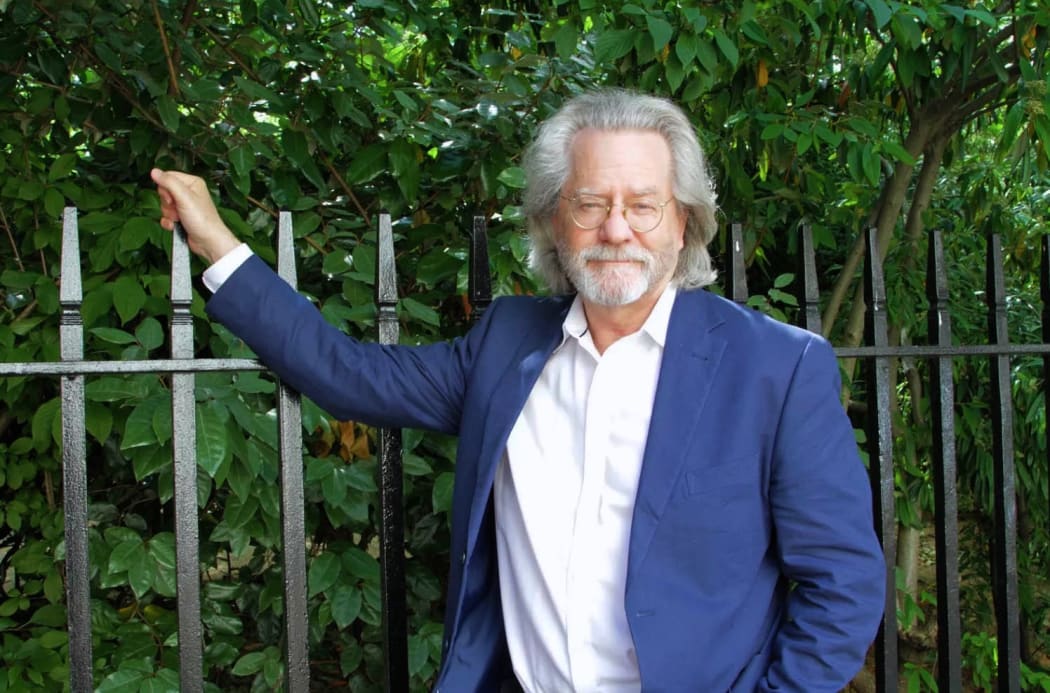Author and philosopher AC Grayling says there's a crisis in democracy and we need to try to get political and government systems back on track.
“And I think we can do with relatively modest reforms,” he says.

AC Grayling Photo: supplied
In his book, Democracy and its Crisis, Grayling takes a whistlestop tour of political philosophy and democratic systems through the ages.
People have two main democratic rights, he says, the right for every citizen to have a voice and the right to “good enough” government.
“That means the institutions of government and the way the political order works should be transparent, and should be honest, and should do what it’s meant to deliver - that is, public policy that is in the interests of everybody.”
Grayling takes aim at the party machinery, or whip system, in which a political party in power makes sure it can deliver its agenda by exerting control over individual lawmakers.
The result is members of parliament or congress representing the party line rather than the country’s interests.
“That is one way, a rather insidious way, in which the political order gets hijacked.”
Grayling argues it’s crucial to try to get back to a situation of having a legislature independent of the executive, or government, and being able to hold it to account.
“Members of parliament should really represent the interests of constituents and the country and not just be slaves to the party machine.
“It’s that kind of thing, very modest reforms, that would get us back to what we’re meant to be doing in our government order.”
Without a legislature able to hold the executive to account, “bad decisions” like Brexit can be made, as a conservative government with hardline Brexiters can force through the decision.
In a representative democracy – in which members of parliament are voted for, and paid to, get the facts, listen to arguments, come to sensible decisions, and act in the interests of everybody – there is no place for referendums such as the Brexit vote, he says.
“Referendums are not natural in a representative democracy and when they happen it’s because the politicians have lost their nerve.
“Something of immense complexity, like the relations of the UK with the EU, and also of immense constitutional significance should definitely not be a referendum matter.”
Participation in democracy should be thought of as a civic duty, he says.
But he cautions against regarding populism as true grassroots movements.
“What instead happens is that you get people usually either on the extreme right or the extreme left who see an opportunity in the frustrations and resentments of people who are struggling in the economy.
“They’re able to organise, temporarily, support for a movement, like for example the EU referendum movement, because the people in parts of the economy which were feeling a bit left behind … were looking for a way of delivering a kick to a government which had been applying an austerity measure for too long.”
He supports measures such as compulsory voting, as in Australia and Belgium.
“My view is it’s as much a civic duty to vote as it is to pay your taxes and drive on the correct side of the road.”
It should be the duty of society to equip people as best it possibly can to make them good citizens from the point of view of participation in politics.
A better informed democracy will produce better governments, he says.
“We should inculcate in people from the very early part of secondary education what a great role each one of us has to play when we get to the voting booth.”
Since 1945 most countries have either become, or pretended to become, democracies, because countries with that system have flourished and others wanted to copy that.
Grayling says there's now a new model, the one party state of China, which is vastly commercially successful, and likely to be attractive to other countries.
“That’s bad news, this is why we need to get our democracies back on track and make them work, because we don’t want too many countries starting to go down the Chinese road.”
AC Grayling will speak at two sessions (10 and 11 March) during Writers & Readers at the New Zealand Festival in Wellington and will also be a guest of the Auckland Writers Festival (15- 20 May).

